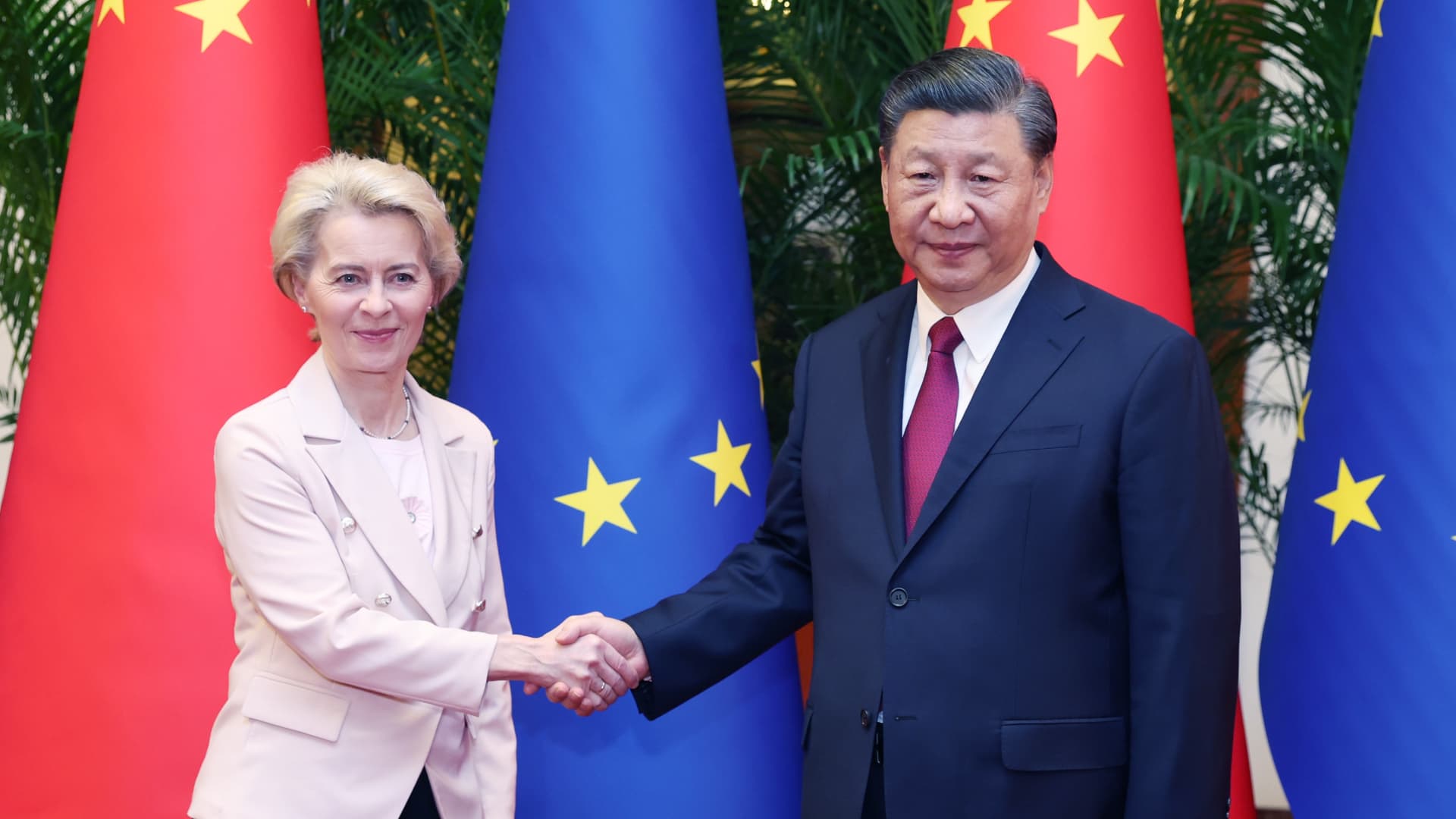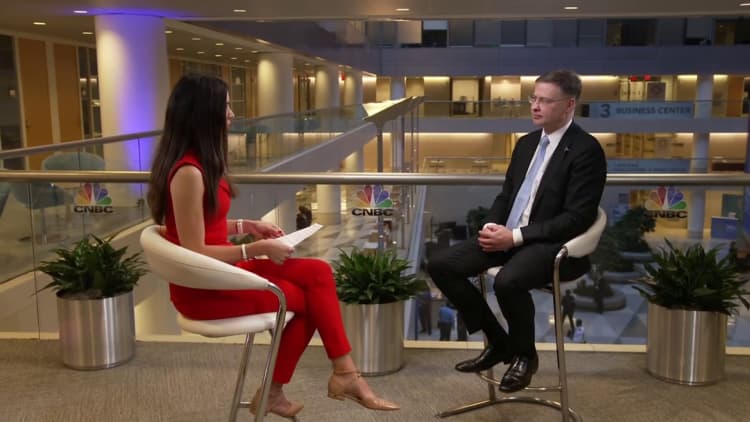
Chinese President Xi Jinping met with European Commission President Ursula von der Leyen in early April.
Xinhua News Agency | Xinhua News Agency | Getty Images
European Union officials on Tuesday called for a new and joint approach toward China, following French President Emmanuel Macron‘s controversial comments on Taiwan earlier this month. However, this new strategy is unlikely to please the United States.
The Biden administration has so far adopted a particularly critical tone toward Beijing and put forward measures to restrict China’s influence, including export restrictions on certain technologies. It has pushed European nations to do the same.
European nations currently have different views on dealing with Beijing. Some capitals favor a closer relationship with the U.S., given its critical role on security and defense — while other countries are afraid of antagonizing China and endangering deep economic ties. This has resulted in a divided approach towards China.
“I believe we can, and we must, carve out our own distinct European approach that also leaves space for us to cooperate with other partners, too,” Ursula von der Leyen, president of the European Commission — the executive arm of the EU — said during a speech on Tuesday.

She argued that the relationship with China “is too important for us not to define our own European strategy and principles.”
China was the largest source of EU imports and the third largest buyer of EU goods in 2022, according to Eurostat, highlighting Beijing’s economic importance for Europe. This is particularly relevant when economic growth in the EU is vulnerable to the ongoing war in Ukraine.
European leaders have also tried to forge closer relations with Beijing, so that the latter refrains from supporting Russia in the war with Ukraine. United States intelligence suggested China considered sending weapons and other ammunition to Russia, according to NBC News.
There is also the question of climate change, where many EU leaders find a dialogue with China pivotal toward any substantial progress in bringing down CO2 emissions.
“The point I made in Beijing is that we do not want to cut economic, societal, political and scientific ties,” von der Leyen said at the European Parliament in Strasburg.
“But there is an urgent need to rebalance our relationship on the basis of transparency, predictability and reciprocity,” she stressed, adding that “the central part of our future China strategy must be economic de-risking.”
This marks a stark difference from the American perspective, as U.S. officials believe that a complete dissociation from Beijing — known as de-coupling — is the best approach. For Europe, the intention is to reduce and avoid risks, rather than a complete disengagement from China.
We are in rival mode, but we have to keep talking with China.
Josep Borrell
EU’s top diplomat
But there is no doubt this is a tricky process.
Returning from a visit to China earlier this month, Macron said the EU needs to have its own policy on Taiwan and to avoid following the U.S. agenda on the matter. He later added that being allies does not mean being vassals, reinforcing the idea of an independent EU policy.
His comments were received with criticism in the U.S., but also in Germany and other European nations.
“We remain fundamentally committed to EU’s One China Policy. We see no reason to question it. We must lower the tension; avoid verbal outbursts or provocations that can only fuel mistrust. However, any attempt to change the status quo by force would be unacceptable,” Josep Borrell, the EU’s top diplomat, said in a statement. He cancelled a trip to China earlier this month, after testing positive for Covid-19.
On Tuesday, he added that the EU needs to recalibrate its strategy towards China.
“We are in rival mode, but we have to keep talking with China,” Borrell said in Strasbourg.
